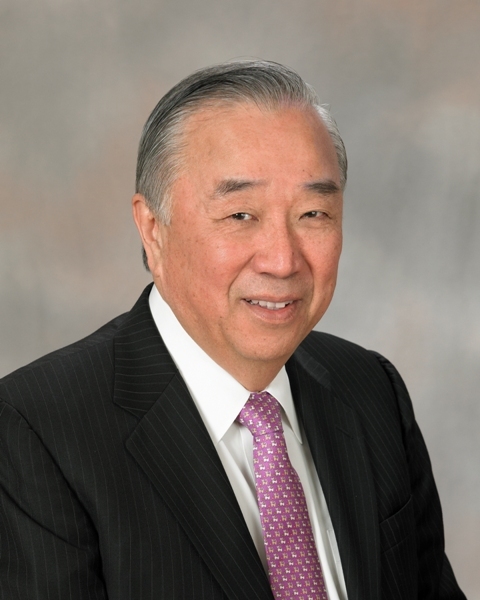북한에 억류된 한국계 미국인 케네스 배 씨가 정권을 전복시키고 지도부를 암살하려는 음모를 꾸민 혐의를 받고 있다고 최근 빌 리차드슨 전 뉴멕시코 주지사와 함께 북한을 방문했던 토니 남궁씨가 전했다.
 |
토니 남궁 |
<관련 영문 기사>
U.S. detainee accused of plotting to kill N.K. leadership: Namkung
By Shin Hyon-hee
A U.S. citizen detained in North Korea that former New Mexico Governor Bill Richardson sought to bring home during his recent visit is accused of plotting to topple the regime and assassinating the leadership, a member of his delegation told The Korea Herald.
Kun “Tony” Namkung, a North Korea expert known for longstanding ties with Pyongyang, arranged and took part in the trip by Richardson and Google Inc. executive chairman Eric Schmidt from Jan. 7-10.
The much-trumpeted mission was partly aimed at negotiating the release of Kenneth Bae, the Korean-American tour operator who was arrested in November in the Rason economic zone. The North’s official media said he had committed “crimes against the state” but details had remained unclear.
“My understanding is that he has been accused of serious crimes including plotting to overthrow the regime and assassinating the leadership,” Namkung said in an email interview.
“Richardson’s hope was to see the detainee, Kenneth Bae, and if possible, bring him home. However, North Korea was not cooperative in this regard.”
Namkung, 68, is the grandson of Namkung Hyuk, who headed a Presbyterian seminary in Pyongyang set up in 1901 by American missionaries.
Since 1990, he has made more than two dozen trips to North Korea and served as an unofficial liaison between Pyongyang and Washington. He advised Richardson on Asian affairs during his 2003-10 governorship and now works as an independent scholar and consultant.
During the latest four-day stay, the nine-member group toured a computer lab at Kim Il-sung University and the Korea Computer Center in the capital, among other places. They also met with North Korean officials from the Foreign Ministry and the military.
“The primary purpose was to achieve an overview of North Korea’s information technology industry and to explore the prospects for cooperation in the future, which was fully achieved,” Namkung said.
The North is one of the world’s least wired countries in the world. A tiny fraction of its elite has access to computers and the Internet, while a more available domestic intranet provides extremely limited, state-approved information only.
Schmidt has been campaigning for global Internet freedom and its role in combating poverty and suppression.
“The trip demonstrated that North Korea is prepared to expand access to the Internet, develop its digital technology to higher standards and increase the use of mobile phones,” Namkung added.
Despite the reclusive country’s digital readiness, however, he acknowledged increasingly pressing challenges in its relations with South Korea and the U.S.
Washington took issue with the timing as the trip appeared to boost Pyongyang’s profile despite its test of a long-range rocket last month and growing signs of a nuclear test.
He forecast the North would use two-stage hydrogen bombs rather than previously used atomic devices to generate a greater amount of energy by driving secondary reactions of fusion fuel and fission materials.
The communist regime’s uranium enrichment program and overall nuclear “deterrent” is “improving by the day,” Namkung said.
“It will be very difficult to forestall another nuclear test, which will this time be a thermonuclear test, unless the U.S. and North Korean governments reach out to one another to revive the ‘Leap Day’ deal of last year.”
He was referring to a now-defunct Feb. 29 deal between the two rivals, under which the cash-strapped North agreed to put a moratorium on its nuclear projects in return for 240,000 tons of nutritional assistance. The U.S. rescinded the agreement following the North’s rocket liftoff in April.
With President-elect Park Geun-hye seeking to engage Pyongyang, Namkung called on her incoming government to quicken diplomatic efforts to dissuade Pyongyang from a third nuclear test and defuse tension.
“I believe they are following every development in South Korean politics very closely,” he said, citing his meeting with North Korean officials.
“Their attitude is one of wait-and-see. It is incumbent on the two Koreas to open a dialogue -- if necessary, a secret one -- to set the agenda for a new relationship.”
Namkung added that Pyongyang’s atmosphere has “brightened” with more cars on the road and restaurants compared with his last visit in June.
Other changes include “more disposable income with which to buy goods in improved stores, even more bustling private markets, improved attire, and last but not least, higher heels for women,” he said.
“As always, North Korea’s opening and reform is contingent on its relations with the three countries with which it has adversarial relations -- South Korea, the U.S., and Japan,” he added. (heeshin@heraldcorp.com)






![[Today’s K-pop] Blackpink’s Jennie, Lisa invited to Coachella as solo acts](http://res.heraldm.com/phpwas/restmb_idxmake.php?idx=644&simg=/content/image/2024/11/21/20241121050099_0.jpg)
